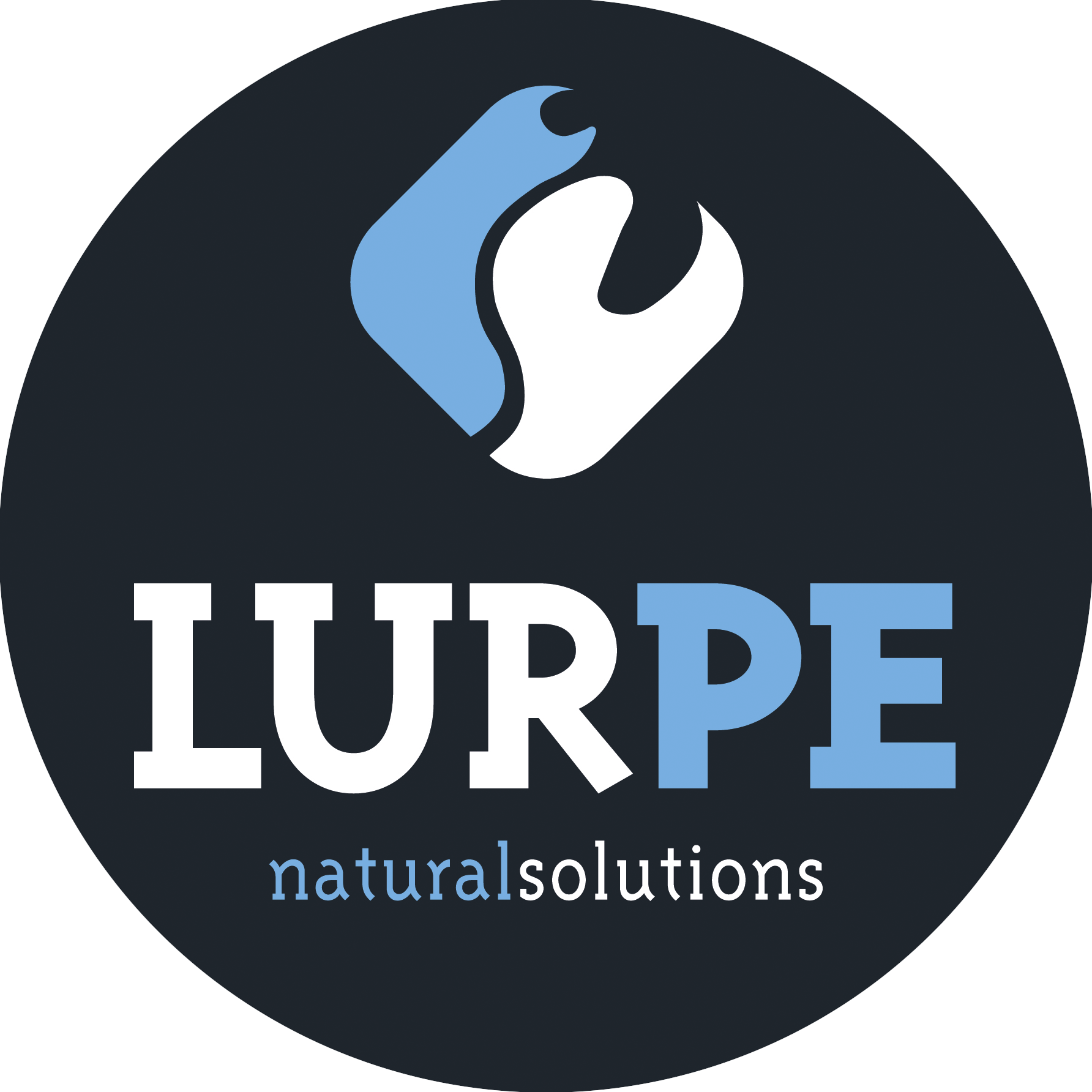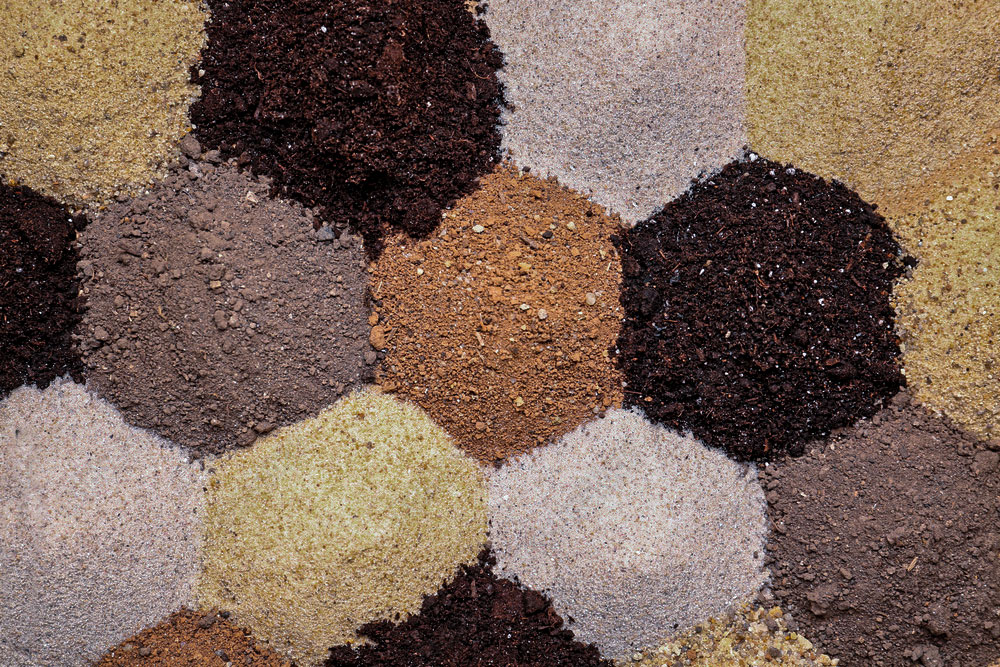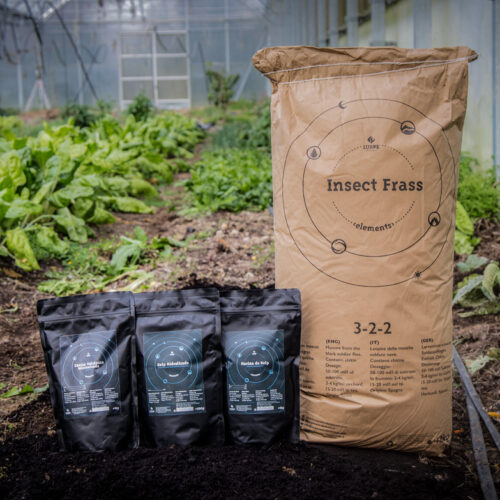Circular Economy
The use of by-products from agriculture, livestock, and mining helps to minimize the environmental impact of these industries.

Nature Provides Us with All the Nutrients
The proper selection of raw materials is fundamental to create effective Super Soil and Compost Tea.
At Lurpe Natural Solutions, we offer a catalog of ingredients with their respective agronomic properties to enrich your soil and properly nourish your plants. Through our experience, we've learned that patience and observation are key in the soil improvement process.
Discover the diversity of natural elements at your disposal, and how they can transform your cultivation. This is a reference list for understanding the ingredients and to show the great diversity of natural elements we have at our disposal. The use of all the ingredients we mention is accepted in Organic Agriculture.

The use of by-products from agriculture, livestock, and mining helps to minimize the environmental impact of these industries.
Certified organic ingredients that ensure cultivation practices without harmful chemicals, improving the quality and safety of crops.
Promotion of biodiversity through the use of raw materials that encourage a rich and varied environment, essential for ecological balance.
Technological and scientific advances applied to the selection and development of raw materials, to maximize nutritional efficacy and crop yield.
The Foundation of a Rich and Sustainable Cultivation
Excellence in cultivation begins with the highest quality ingredients
Our reference list details ingredients available for Organic Agriculture, highlighting the importance of choosing materials that not only benefit your plants but also the environment.
Explore the power of plant-based, mineral, and animal-derived raw materials in strengthening
and nourishing plants, improving soil quality for more sustainable and productive agriculture.
Known for its nitrogen-fixing ability, alfalfa roots reach significant depths, extracting vital minerals like calcium and magnesium. Essential for nourishing plants and improving soil health, it’s also rich in natural sugars that produce triacontanol, enhancing soil activity.
Nettle stands out for its richness in chlorophyll and nitrogen, essential for
the plant growth cycle. It contains an abundance of vitamins and minerals, strengthening plants against pests and diseases.
Effective in preventing fungal diseases, thanks to its high silicic acid content. It also acts as an insect repellent, offering additional protection against pests.
This plant is a rich source of potassium and assimilable nitrogen, benefiting fluid absorption and strengthening plant cell walls with its vitamin C content.
Burdock is valued for its high potassium content and nutrients that bolster plant immune systems, promoting health and resistance against pathogens.
Rich in iodine, calcium, and a variety of vitamins, kelp is a growth stimulant that improves plant resistance to stress conditions, besides favoring beneficial soil microorganism activity.
As a highly nutritious algae, spirulina is a powerful activator of the plant immune system, contributing to a healthy soil microbiology.
Hydrolyzed kelp is a highly soluble extract obtained through alkaline hydrolysis. This process concentrates the various beneficial elements of kelp while increasing their availability.
Hydrolyzed kelp is a potent concentrate of vitamins, iron, iodine, trace elements, growth-regulating phytohormones, and other compounds native to kelp. It also contains a variable
percentage of potassium depending on the extraction process. In summary, it concentratesmost of the benefits of kelp.
It can be used both in irrigation and foliar application.
Molasses is rich in minerals, particularly in potassium, trace elements, and vitamins. Molasses provides the carbohydrates that microorganisms need to feed on, making it advisable to use when making compost teas.
There are different types of sugar that have not undergone chemical refining processes.
Different qualities can be found depending on the processes the sugar cane broth has been subjected to (evaporation, centrifugation, etc.).
Like molasses, it provides the carbohydrates that microorganisms need to feed on, making it advisable to use when making compost teas. It also provides various easily assimilated trace elements.
Leonardite is a humified vegetable substance, very rich in organic matter, in an intermediate state of transformation between peat and lignite (coal). It originates from the burial of plant materials millions of years ago and is usually found in the upper layers of open-pit lignite mines.
Leonardite does not have defined and equal characteristics and riches. Its richness varies depending on its organic matter content and the type of vegetation that gave it origin, as well as its position or depth relative to the soil where it was found.
As a result, the percentage of organic matter, the degree of humification of this matter, the composition of humic and fulvic acids, the content of silicon and microelements, varies depending on the source of the leonardite.
The characteristics of leonardite make it ideal for use as an amendment, improving the physicochemical characteristics of the soil and providing microelements chelated by the action of humic acids.
Humic acids, as understood in agriculture, encompass both humic and fulvic acids. They can come from various sources, but most of the humic acids on the market are obtained from Leonardite, which due to its characteristics are considered to be of the best quality and have
the greatest agronomic properties.
From an agronomic point of view, humic acids are used to improve soil structure. Their molecular structure is larger than that of fulvic acids, their decomposition by microbial agents is slower, gradually improving the physical capacity of the soil (water retention), chemical
properties (cation exchange capacity), and biology (increase in bacterial population).
Fulvic acids are used to stimulate root development. They are less complex molecular structures and can be absorbed by plants (humic acids cannot be absorbed).
Humic and fulvic acids can be applied throughout the entire crop cycle. Their properties give them a great ability to improve all types of soils: they improve aeration in clay soils; increase water retention capacity in sandy soils; and help to recover the structure of eroded soils.
Vegetable compost is obtained through the decomposition of plant residues carried out naturally by microorganisms, favored by temperature, humidity, and aeration over a more or less extended period depending on conditions. The result is a product rich in nutrients and
other compounds that, when added to the soil, activates indigenous microorganisms, favoring biogeochemical cycles and, thereby, soil health. This contributes to the plant developing with greater vigor and resistance to pests and diseases. Vegetable compost is used as the base product in the preparation of compost tea.
Nitrogen-fixing bacteria that enhance the availability of this essential
nutrient for plants, even under anaerobic conditions.
Produces metabolites that protect plants from fungal and bacterial pathogens, enhancing plant resistance to diseases.
Improves nutrient availability in the soil, such as potassium, and offers
protection against adverse conditions.
Specialized bacteria in phosphate solubilization, facilitating phosphorus
availability for plants.
Known for its ability to limit the growth of pathogens through the production of siderophores and enhance plant tolerance to stress.
Volcanic ash is a valuable resource in agriculture for its richness in essential minerals like silicon, calcium, and potassium, which improve soil fertility and structure, regulate its pH, and strengthen plants against diseases and pests.
Additionally, it promotes beneficial microbial activity and offers a sustainable and economical solution to enrich the soil, thus contributing to environmental health and agricultural productivity. Its application should be carefully considered to maximize benefits and avoid nutrient overload.
Volcanic rock that slowly releases crucial minerals such as silicon and magnesium, improving plant health and resistance.
Provides a concentrated supply of phosphorus and calcium, essential for
vegetative and root development of plants. The use of rock phosphate as a source of phosphorus and calcium in agriculture can lead to the accumulation of cadmium in the soil, a toxic heavy metal with adverse effects on human and environmental health. The presence of cadmium can negatively affect soil microbiology.
Immediate source of magnesium, essential for photosynthesis and overall plant health.
A natural fertilizer rich in phosphorus and calcium, essential for rooting, growth, nutrient absorption, and flowering of plants. Increases fruit setting and enhances plant vigor against pests and external negative factors.
A product derived from poultry processing, feather meal is an excellent source of slow-release nitrogen. Its high protein content contributes to improving soil structure and provides essential nutrients for plant growth.
With high levels of nitrogen, phosphorus, fish meal is a complete organic fertilizer that stimulates plant growth and improves soil health. It’s particularly valuable for its content in amino acids and essential fatty acids that promote microbial activity in the soil.
Rich in calcium, nitrogen, and especially chitin, crustacean meal not only
nourishes plants but can also help suppress certain soil diseases and pests like nematodes.
Chitin promotes the activity of beneficial microorganisms that break down this compound into chitosan, a natural biostimulant for plant growth.
An organic fertilizer rich in nitrogen, providing this essential nutrient quickly to plants. Dried blood is ideal for promoting vigorous green vegetative growth. Being a fast-acting product, it is particularly useful during the early stages of growth or when plants need an immediate nutritional boost.
Provides calcium and magnesium to the soil, improving its structure and
promoting microbial activity.
Source of silicon and calcium, improves soil nutrition and offers physical
protection against pests.
Each component of this guide is designed to provide farmers and gardening enthusiasts with deep knowledge of how to improve plant health and soil quality naturally and sustainably. By carefully selecting quality raw materials, it’s possible to promote an optimal growth environment for plants, ensuring their vigorous and sustainable development.
LURPE NATURAL SOLUTIONS STORE
Contact us if you can’t find what you’re looking for
Discover at Lurpe Natural Solutions a variety of Raw Materials ideal for any cultivator. Our goal
is to maximize your results, saving you time and money on each harvest.
Explore our options and enhance your production efficiently.

